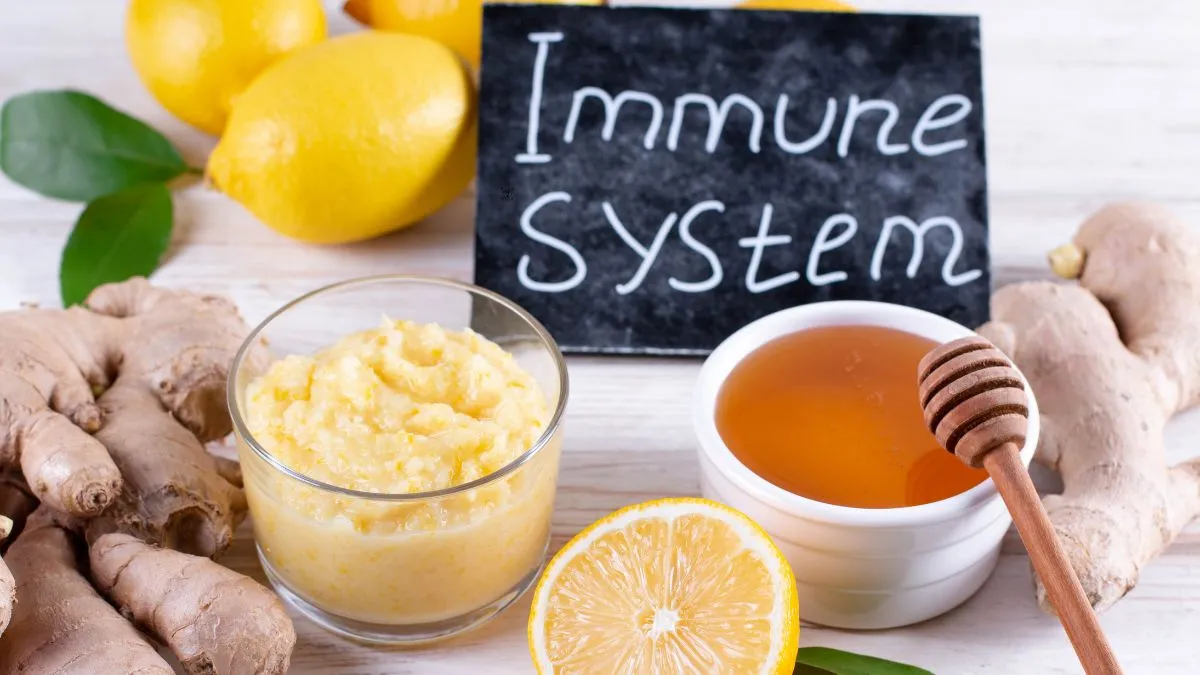- By Priyanka Munshi
- Fri, 26 Jul 2024 05:08 PM (IST)
- Source:JND
A strong immune system of your body's natural defense against diseases and infections is largely dependent on eating a proper, balanced diet. A balanced diet supplies the vital elements our bodies require for optimum performance, including healthy fats, carbohydrates, protein, vitamins, and minerals. For example, antioxidants like vitamins C and E, present in fruits and vegetables, help shield our cells from harm. Nuts, seeds, and shellfish are good sources of zinc, which is necessary for immune cells to form and operate normally.
Proteins, the building blocks of the body, aid in the synthesis of antibodies that fend off harmful invaders. Nuts, avocados, and olive oil are good sources of healthy fats that help control the immune system and lower inflammation. Carbohydrates, particularly those found in whole grains, provide the energy required for all body processes, including the immune system. Dr. Sri Karan Uddesh Tanugula, a consultant general physician at Yashoda Hospitals in Hyderabad, discussed the benefits of consuming a balanced diet for immunity maintenance with Jagran English.

Eating a well-balanced diet regularly helps maintain a robust immune system, allowing us to fight off infections and recover from illnesses faster. (Image Credit: Canva)
Scientific evidence and research strongly support the assertion that a balanced diet plays a pivotal role in bolstering the immune system. The immune system is a complex network of cells, tissues, and organs that work synergistically to defend the body against infections and diseases. Proper nutrition is essential for the maintenance and optimal functioning of this intricate defense mechanism.
As per Dr. Sri Karan, macronutrients and micronutrients are both integral to immune health. Proteins, for instance, provide the building blocks for immune cells and antibodies. Studies have shown that protein-energy malnutrition can lead to impaired immune responses, increasing susceptibility to infections. Carbohydrates and fats, while often scrutinized in diets, are equally important as they supply the energy required for the immune system to perform its functions effectively.
Vitamins and minerals are crucial for immune competence. Vitamin C, a potent antioxidant, enhances the production and function of white blood cells, key players in the immune response. Research indicates that adequate vitamin C intake can reduce the duration and severity of upper respiratory tract infections. Similarly, vitamin D has been linked to the modulation of the immune response and a decrease in the risk of autoimmune diseases. Studies have shown that vitamin D deficiency is associated with increased susceptibility to infections.
In addition, he further added that minerals such as zinc and selenium are also vital. Zinc is necessary for the development and function of immune cells, and its deficiency is known to impair the immune response. Selenium, another antioxidant, helps lower oxidative stress in the body, reducing inflammation and enhancing immunity.
Furthermore, a balanced diet rich in fruits, vegetables, whole grains, lean proteins, and healthy fats provides the necessary phytonutrients and antioxidants that help combat oxidative stress and inflammation, further supporting immune health.
Lastly, Dr. Sri Karan said a balanced diet, comprising an appropriate mix of macronutrients and micronutrients, is essential for maintaining a robust immune system. Ensuring adequate intake of these nutrients through a well-rounded diet can significantly enhance the body’s ability to fight infections and maintain overall health.

